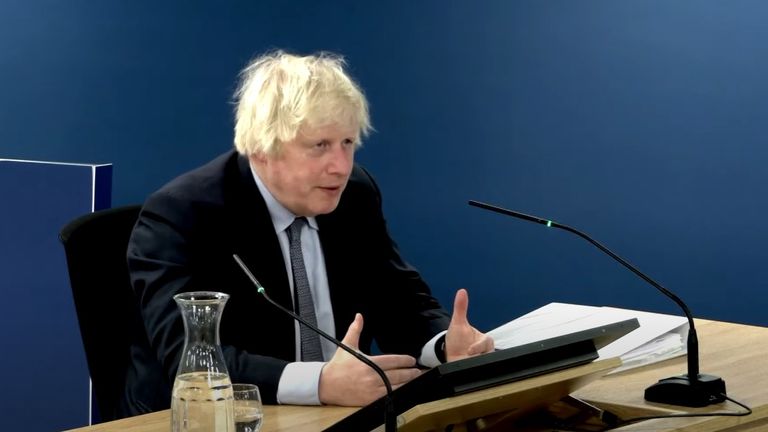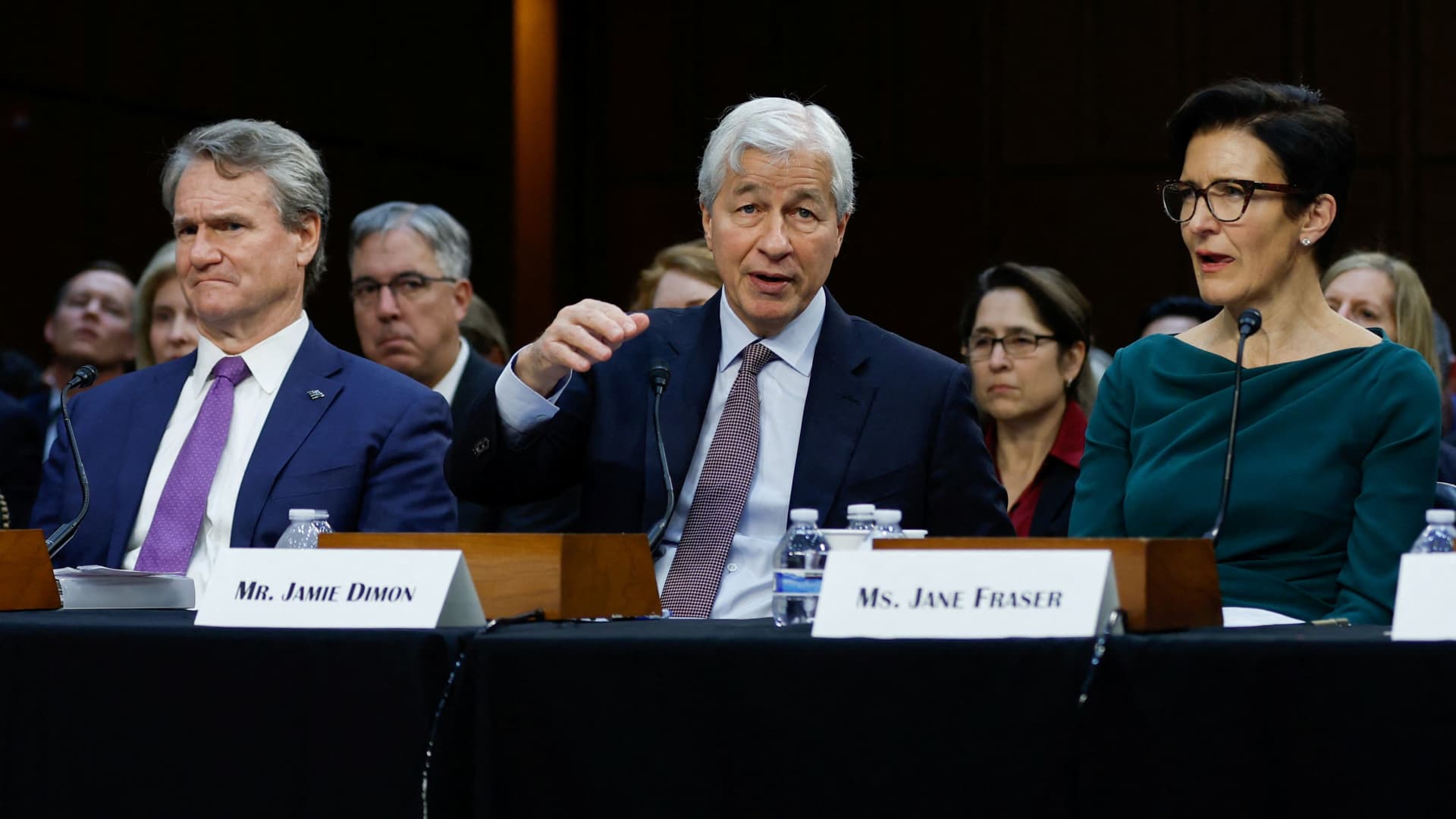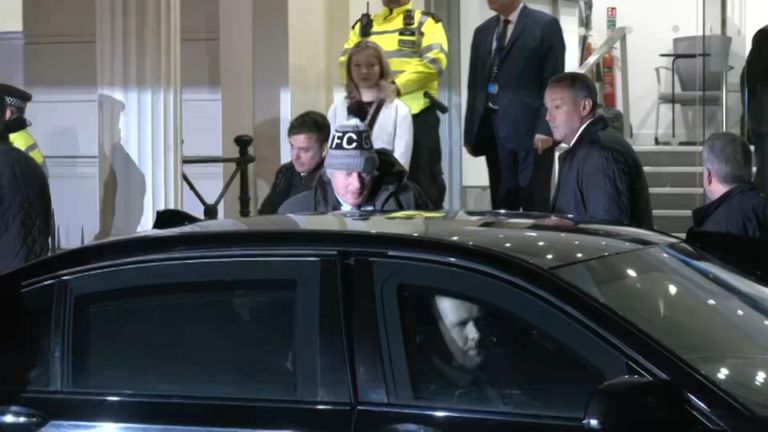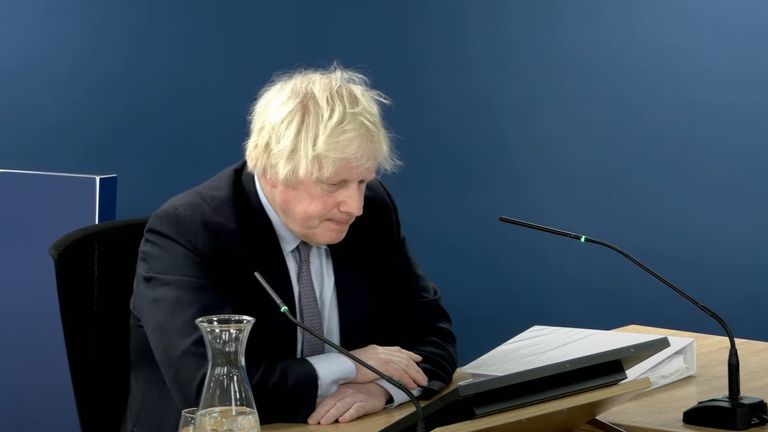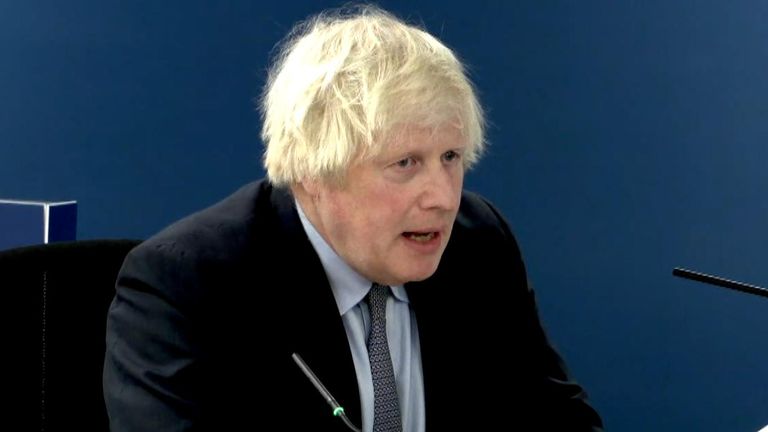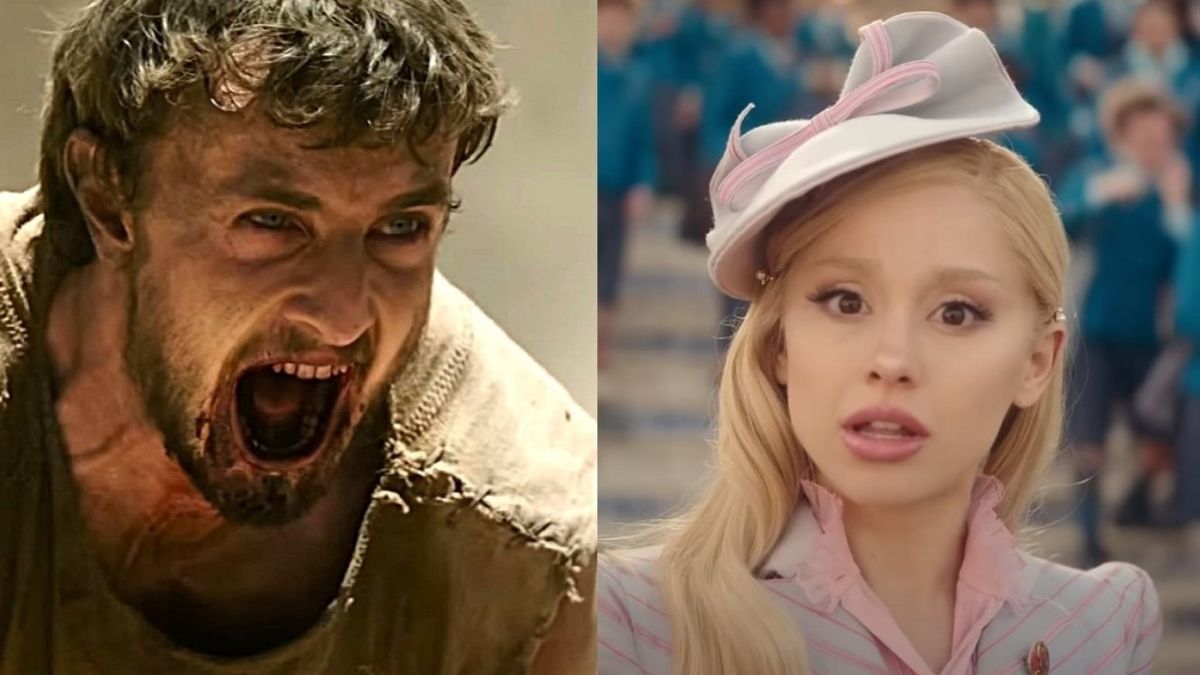Boris Johnson will face a second day of questioning at the COVID inquiry today following his five hour quizzing on Wednesday.
The former prime minister will return to the hearing having been booed by crowds of bereaved families as he left.
Partygate, a scandal over rule-breaching gatherings at No 10 during the pandemic that dogged Mr Johnson’s premiership, is expected to feature during today’s proceedings.
Victims’ families will also be given another chance to read out impact statements.
During yesterday’s evidence he admitted he should have “twigged much sooner” about the threat posed by COVID-19 in the early days of the pandemic, as he apologised for “the pain and the loss and the suffering” of its victims.
He also told the inquiry that:
- The government “underestimated the scale and pace of challenge” from COVID – thinking the peak would come in May or June;
- The tone of private WhatsApp exchanges was a “reflection of the agony” the country was going through;
- A denial he was on holiday over the half-term break in February 2020 – as claimed by former aide Dominic Cummings
- Mr Johnson explaining that he “can’t say” whether he would have “gone earlier” in ordering the first lockdown, but that he took “full responsibility” for the decisions made;
- The former prime minister offering an apology to sufferers of long COVID, having described the condition as “b*****ks” in 2021;
- He stood by Matt Hancock, saying the then health secretary did “a good job” whatever his “defects”.
The first day of the former prime minister’s evidence, which was hit by protests, saw him defending the culture in No 10 after it was branded “toxic” by other witnesses.
He rejected accusations he had shown poor leadership by vacillating over whether to back tough restrictions in the early months of 2020.
Former aides have blamed his tendency to waiver on key decisions in March of that year for delaying the lockdown.
But he argued it was his job to “test” the “completely novel policy”, adding: “It matters to the livelihoods of people up and down the land. I had to go through the arguments and that is what I was doing.”
Challenged over the slow response to the crisis, Mr Johnson said Whitehall “underestimated” the need for action, adding that it was only when he saw the “horrors” of the outbreak in Italy that he realised the seriousness of the virus.
He suggested the experience of previous diseases such as SARS, MERS and swine flu clouded officials’ judgment while a coronavirus pandemic was “outside our living experience”.
The former Tory leader defended his eventual decision to order England’s first lockdown on 23 March 2020, saying by the middle of that month he was giving arguments against restrictions “pretty short shrift”.
“I no longer had the luxury of waiting. It was over,” he told Baroness Heather Hallett’s probe.
Mr Johnson appeared to become emotional as he discussed his “anxiety” about possible behavioural fatigue if he imposed a lockdown too early without a vaccination programme.
He looked on the verge of tears as he described 2020 as a “tragic, tragic” year.
Mr Johnson did not deny questioning why his government was “destroying everything for people who will die anyway soon”, but suggested the comment was not “designed to be publicly broadcast”.
“It’s an indication of the cruelty of the choice that we faced and the appalling balancing act that I had to do throughout the pandemic,” he said when asked about a note written by his former aide Imran Shafi which recorded that he had made the remark.
Read more:
Whatever Boris Johnson said, the evidence pointed to leadership failures
Key points from Boris Johnson’s evidence
Mr Johnson conceded, with hindsight, that mass gatherings should have been stopped earlier and he should not have shaken hands with patients at a hospital where there were coronavirus cases.
His appearance before the inquiry was interrupted by protesters as he began by issuing an apology to victims of the pandemic, with four people removed from the hearing room.
“Can I just say how glad I am to be at this inquiry and how sorry I am for the pain and the loss and the suffering of the COVID victims,” Mr Johnson said.
He went on to acknowledge that his government made “mistakes” and took “personal responsibility for all the decisions that we made”.
Among those decisions were the speed of the government’s response to the pandemic in 2020, the lockdown decisions and their timeliness, the explosion of the virus in the residential care sector, the Eat Out to Help Out scheme, and the decision not to introduce a circuit-breaker later in 2020.
Mr Johnson said that, with hindsight, “it may be possible to see things that we could have done differently”, but at the time “I felt… we were doing our best in very difficult circumstances”.
He claimed he was “not sure” whether government decision-making had led to “materially” a larger number of excess deaths as a result of the pandemic.

